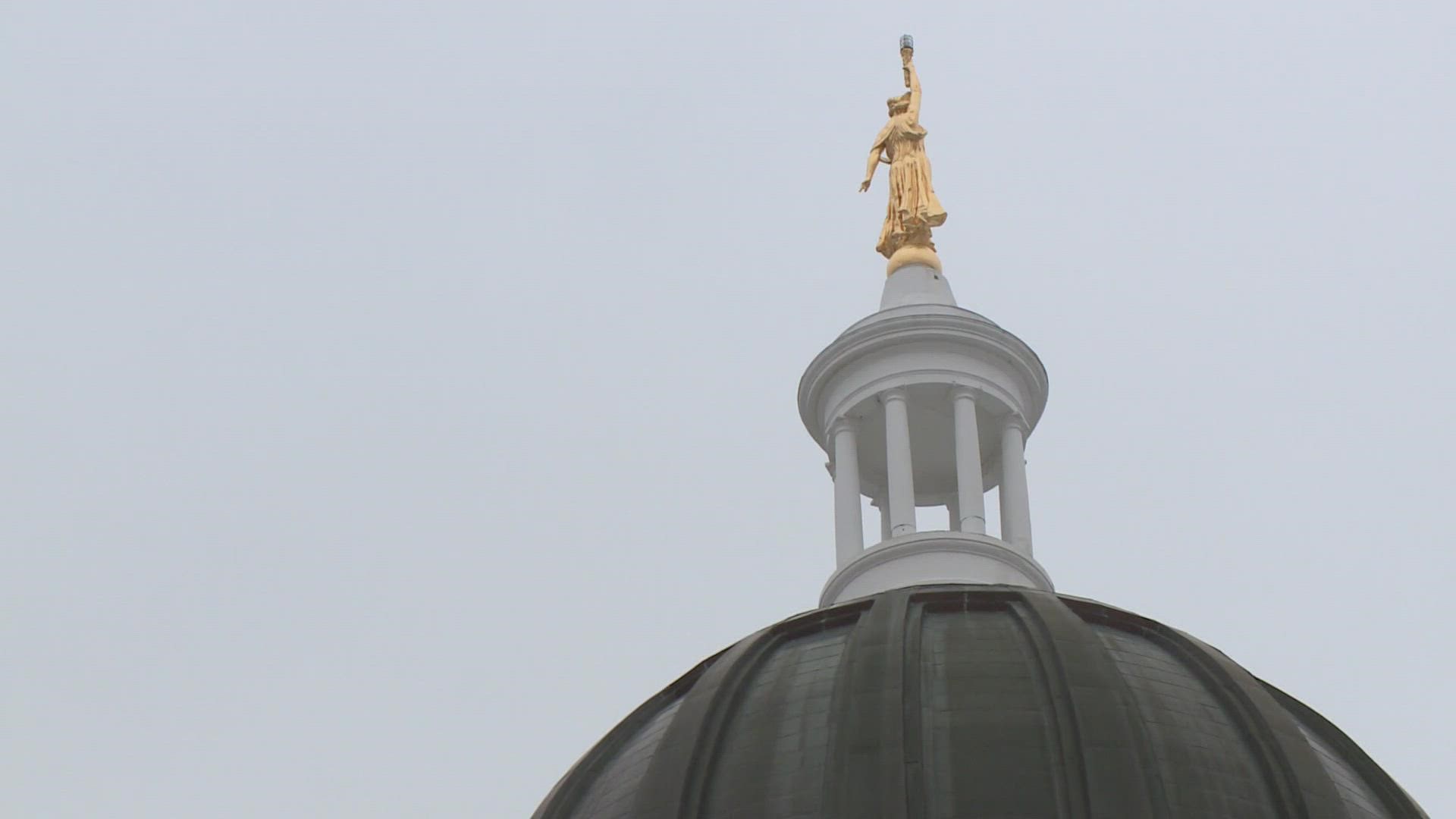AUGUSTA, Maine — Money drives many, if not most, of the significant decisions in the statehouse.
Rep. Jeff Hanley, R-Pittston, said there may, in fact, be too much of it.
“The state of Maine has collected way too much money from our good taxpayers,” he told the Legislature’s Appropriations and Financial Affairs Committee on Wednesday.
The committee held a public hearing on Hanley’s bill to require the state to return most of any year-end surplus to taxpayers. The bill was submitted in the previous session last year but was never brought up. It was carried over to this session.
The bill comes as the committee is awaiting a supplemental budget from Gov. Janet Mills, which is expected to include her plan for using a projected $822 million surplus in the budget year that begins in July.
Maine has had surplus revenues several times in recent years, promoting Hanley’s bill.
“When we see a surplus, it means we’ve met all the goals for the budget. So let’s give that surplus back because if you don’t, it gets spent,” Hanley said.
His proposal would use the end-of-year surplus, which currently gets allocated to several specific funds, including the Budget Stabilization Fund or “rainy day” fund.
Hanley wants to use 10% of the surplus to bolster the rainy day fund and return the rest to taxpayers somehow. He said that would happen only after all the state’s financial obligations are covered and any spending increases approved by the Legislature and Governor.
But advocates for low-income Mainers say the surplus money is needed to help those people.
Sarah Austin of the Maine Center for Economic Policy, a liberal advocacy group, told the committee Maine still has too many unmet needs to give checks or tax cuts to higher-income people.
“It forgoes the opportunity to really invest in families that are struggling right now, and gives money back to (higher income) households and weakens our ability to help households that need it the most,” Austin said.
She outlined several key concerns she said need state investment.
“Things like child care, figuring out how to really invest in a workforce, and also the affordability factor for low-income households,” she said.
Democratic leaders did not take a position on Hanley’s bill when asked on Wednesday.
A spokeswoman pointed out that Rep. Teresa Pierce, D-Falmouth, told NEWS CENTER Maine last month that she would be open to returning some portion of the surplus.
However, Democratic leaders said just last week that critical issues like affordable housing also need to be addressed as part of this year’s budget discussions.
Hanley said his basic idea is a straightforward one and that, especially in an election year, other lawmakers might be reluctant to oppose returning surplus dollars to taxpayers.
His bill, however, would place the requirement on future Legislatures, not just the current one, and could become a significant factor in the coming debate on his proposal.
More NEWS CENTER Maine stories

